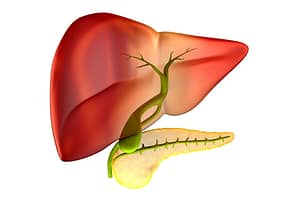What’s better than snuggling up with your pet? Giving them medicine! Unfortunately, giving pets human medications can lead to some serious issues. Pets are a part of the family, and when they’re sick, we want to do everything we can to help them feel better. However, giving them human medication is not always the best solution. Here are the top reasons you should never share the medicine with your pets.
If you’re using a pet-specific medication and the dosage is too high for your cat or dog, it could cause serious harm to them. Other times, the ingredients in the medicine may be toxic to pets, such as chocolate or aspirin, so it’s best to stick with human-grade drugs if you need something stronger than over-the-counter pills. Pet pharmacy Canada can save you money by providing you with pet-friendly medication that is the same quality as human drugs. They also offer a wide range of products, including prescription medications and supplements.
Human vs. Pet Medications:
There are two types of medications: human and pet. Human medications are meant for humans, and pet medications are meant for pets. The most important thing to remember is that human medications should never be given to your pet, as they can be potentially dangerous or ineffective in animals.
The following lists some examples of each type of medication, but keep in mind that these lists are not exhaustive:
- Human Medications: Aspirin (acetylsalicylic acid), ibuprofen (Advil) and naproxen sodium (Aleve)
- Pet Medications: Amoxicillin, cefazolin sodium, dexamethasone tablets, torbafloxacin hydrochloride tablets.
Here are six reasons why you should always consult a veterinarian before administering any medication to your pet:
Human Pain Relievers Can Be Toxic For Pets
Pain relievers are used to treat a variety of ailments in people and animals alike, but they’re not designed for pets. If your cat or dog consumes pain relievers, it can lead to serious health problems. Pain relievers can cause liver damage in pets, which can lead to gastrointestinal issues like diarrhea and vomiting. They can also cause seizures, especially if the animal is on an antidepressant or has an underlying medical condition that affects brain function (such as epilepsy). Most importantly, pain relievers may be fatal for cats if consumed at high doses—and even low levels of some brands are dangerous for them!
Antidepressants Can Have Serious Side Effects On Pets
Antidepressants can have some serious side effects, even in dogs and cats. They can cause seizures, a higher risk of suicide, stroke, and heart attacks. If you’re feeling suicidal or having thoughts of harming yourself or others, call a mental health professional immediately.
Diet Pills Are Dangerous For Pets
The first reason why you should never share the medicine with your pets is that it can cause them to lose too much weight. Many people buy diet pills like Hydroxycut, which is a plant-based supplement that has been proven to help with weight loss by suppressing appetite and boosting metabolism. However, since they are herbal supplements and not FDA-approved medications, there are no real studies on whether or not they’re safe for animals. The risks of giving these supplements to your pet include diarrhea (which could lead to dehydration), nausea or vomiting, constipation, and other digestive issues.
Cold Medicines Can Cloud Your Pet’s Judgment
While these medicines are intended to make you feel better, they can have the opposite effect on your pets. This is because cold medicines can cloud your pet’s judgment and cause them to become dizzy or behave strangely. They may also become drowsy and act drunk.
Too Much Vitamin D Can Be Dangerous For Your Pet
Vitamin D is an important nutrient that can help your pet maintain strong bones and teeth. It also helps promote a healthy immune system. However, too much vitamin D can be dangerous for pets; it has been known to cause kidney damage or even death in some cases. Most animals get enough vitamin D through their diet of fish, eggs, and dairy products (except cats). If you are concerned about your pet’s diet, talk to your veterinarian about the best way to make sure they still get sufficient amounts of this important vitamin.
Final Thoughts:
There are some medications that can be given safely to your pet, but it is important to keep in mind that it’s always best to talk with a veterinarian before giving any medication to your pet. They can tell you what they think would be safe and effective for your animal companion.








